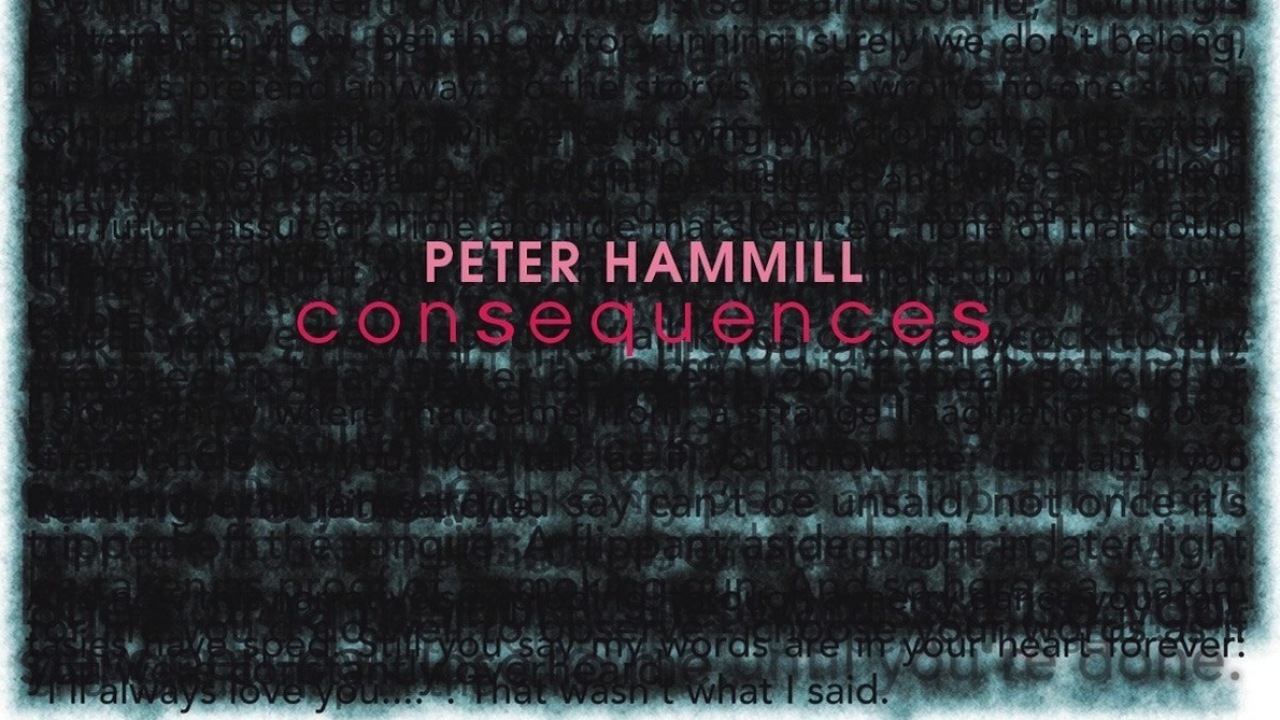Thirty solo albums in, the indefatigable Peter Hammill has, after a career of doing things differently, done something different. The songs here were written and ordered prior to recording. This, he says, is “absolutely not the norm for me”. Thus they come in clutches, wherein specific themes are examined and developed with an author’s sense of narrative. He casts a cold eye on the modern world, musing over the ways in which ‘communication’ has become devalued by the often desensitised nature of virtual relationships, while looking at his own experiences of fatigue, imaginative intensity and responsibility.
Sonically it’s as unorthodox and inventive as his very best work. Structures, instrumentation and of course vocals eschew conventional modes. Somehow, the further out he’s gone, the more accessible he’s become. Hammill, in ploughing his post-VdGG furrow, has trained us to modulate our ways of listening, no less.
So path-choices that might from a lesser artist seem awkward or dissonant, from him come across with conviction and charm. His achievements and courage should not be underestimated. Like Scott Walker or Tom Waits, he’s made his own language stick, patiently prepared for us to catch up.
Consequences is an entirely solo work: just electric guitars, piano, and a few other shades accompany his stentorian voice. That voice uncompromisingly dares you to find it harsh or difficult, then his own backing vocals and harmonies up the ante. The guitars hypnotise throughout, until on Scissors they break into curling, coruscating solos. “The way this narrative’s unfolding,” begins That Wasn’t What I Said, “I’ve got in way above my head”.
The first song cycle looks at the erosion of privacy fostered by the internet and social networks. This leads into the second set, where New Pen-pal and Close To Me find such intimacies spilling over into the protagonist being stalked and the way in which web-chat lends a dangerous illusion of familiarity between strangers. Sinister, yes, as Hammill’s voice so often is, but there’s a flash or two of dark humour.
All The Tiredness tackles the weariness we hold in waiting, and its tendency to burst inconveniently out of its compartment. Perfect Pose – another short story of sorts – hints at the ironies of straining for flawlessness only to achieve it too late. The album’s ending does offer uplift, to a degree: bravery is as valid as dumb luck.
Hammill is maybe the ultimate acquired taste, but his lugubrious tones and literate tales remain as compelling and charismatic as ever.

